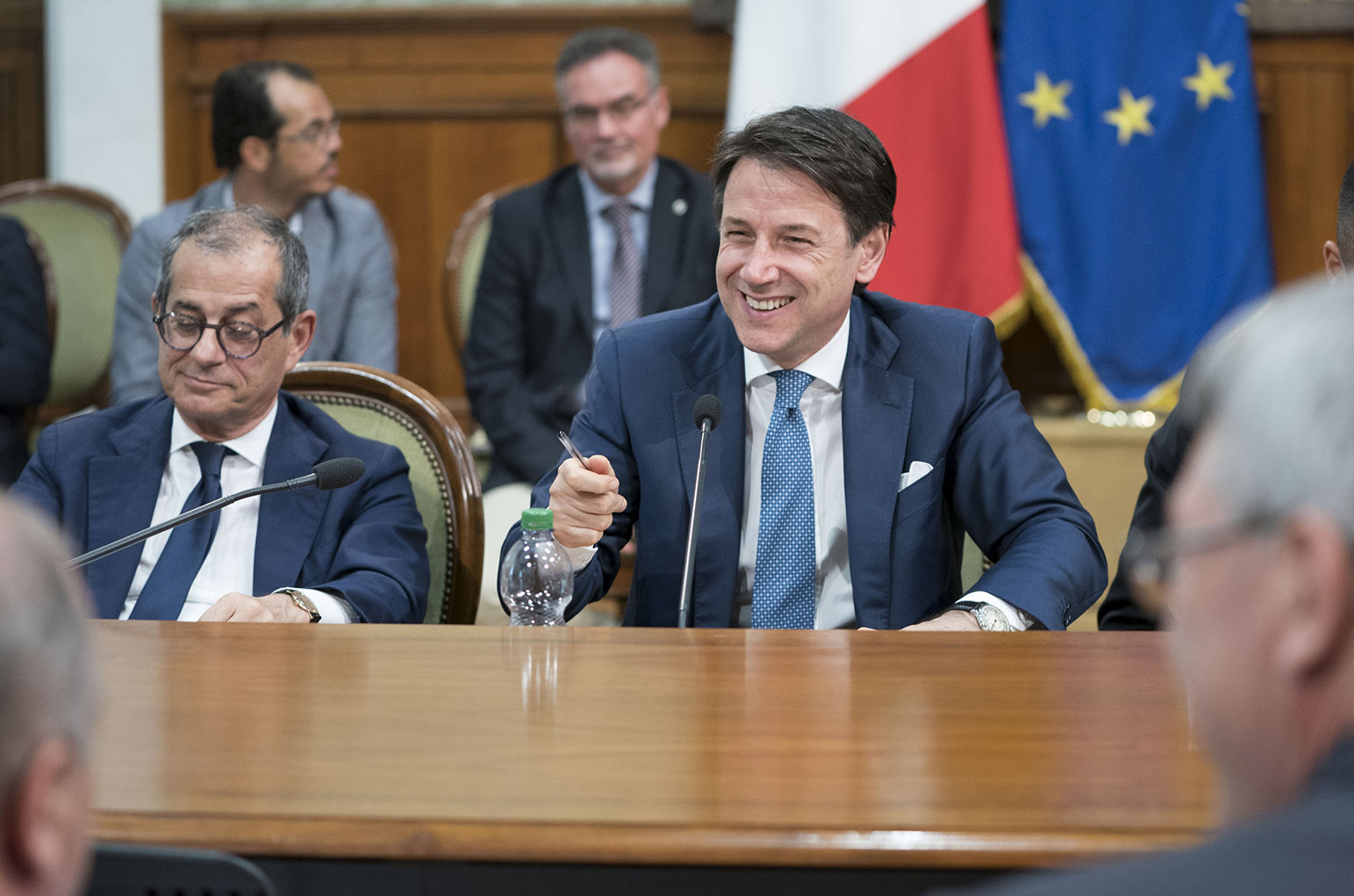Because Conte and Tria’s theses on the ESM are not convincing

What the former Minister of Economy, Giovanni Tria, wrote and what he did not write about ESM and its surroundings
The reconstruction of the facts that led to the conclusion of the negotiation of the reform of the ESM Treaty is like a basket of cherries. Everyone has fun choosing the most beautiful one, but it is the entire basket that must be taken for a correct analysis of those events, while waiting for Parliament, probably now in January, to be called upon to decide on the ratification bill.
On Monday, former Prime Minister Giuseppe Conte announced the request for an honorary jury to defend himself from the accusations – in his opinion unfounded – made in Parliament by President Giorgia Meloni.
Among the protagonists of the story, on Saturday it was the turn of Giovanni Tria, economy minister of the Conte 1 government and protagonist of the fiery Eurogroup meetings between June 2018 and June 2019, when the foundations were essentially laid for the reform of the ESM, which his successor Roberto Gualtieri then finalized during the Eurogroup on 30 November 2020.
And not even Tria was immune from the flaw in the oration Cicero pro domo sua. In fact, he claims that he did not cross the "red lines" and that he received Conte's approval at the end of the negotiations.
But, like the cherries, Tria also chose his red lines. And he forgot some others.
He claims that it prevented the ESM from being tasked with carrying out a sustainability analysis of member states' debt and making it public. But it appears to us that Article 3 of the Reform Treaty provides exactly this, with the only difference being the lack of publicity of this analysis. Very little consolation, if the objective was, as he himself recalls, to keep the task of fiscal supervision in the hands of the Commission.
It also claims to have prevented banks from having to consider public securities in their portfolio no longer at zero risk, thus introducing a risk weighting. But this would have been a merit to be claimed only if EDIS (common deposit insurance) had been successful. Which was expected in the famous “packet logic”. Instead, EDIS remained blocked and we allowed the sustainability analysis, albeit confidential, in the reforming ESM.
Tria plucks another cherry regarding the parliamentary resolution of June 2019, the one chock-full of conditions and no to the ESM reform.
To maintain that he had fulfilled that mandate well, Tria claims that he had all the conditions not acceptable to Italy eliminated, citing one of them (that too keeps fiscal supervision in the hands of the Commission). And all the other conditions that the June resolution contained?
Above all the "package logic" with its unequivocal meaning of jointly conducting negotiations on multiple issues (ESM and Banking Union) and considering the negotiation closed only when an agreement has been reached on both dossiers.
Instead, the reform of the ESM in those crucial months took the fast track and arrived at its destination almost intact, while traces of the Edis were lost.
At this point, Tria correctly asks why there are doubts about the approval of the reform of the Stability Pact which "reproposes" the dangers that he took care to erase from the ESM reform.
Perhaps because the reform of the ESM still contains those dangers and the reform of the Stability Pact is equally dangerous? And therefore both should be rejected?
This is a machine translation from Italian language of a post published on Start Magazine at the URL https://www.startmag.it/economia/conte-tria-mes/ on Wed, 20 Dec 2023 07:24:03 +0000.
